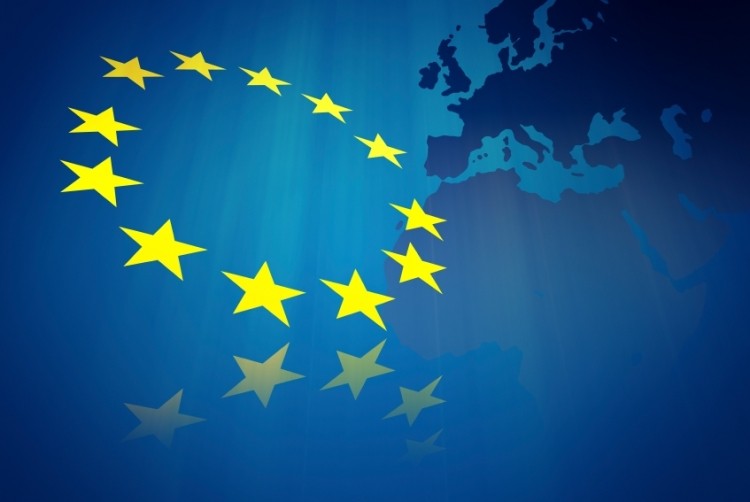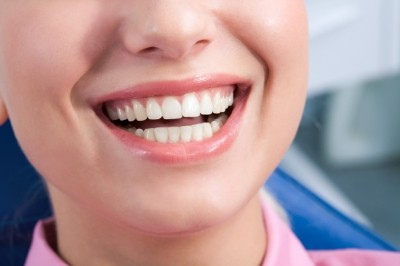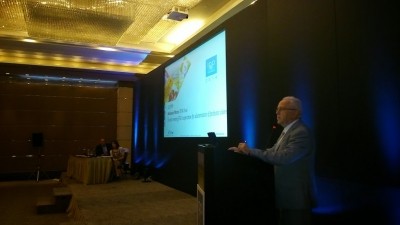"They are scientists performing a very difficult task, as instructed by EU law makers."
I observed the EFSA health claims panel in action; conspiracy theorists will be disappointed

We weren’t permitted to ask questions or be involved at all but we sat in office chairs against adjacent walls and observed the panel sat facing each other in rectangular formation work through two opinions – not health claims but dietary reference values (DRVs) for vitamin C and fluoride. There was meant to be another – molybdenum – but time ran away.
Other ‘observers’ included Kemin; Merck Consumer Health; Rephine Balticum; Instituto Kurz Italia; Nestlé-L’Oreal joint venture, Inneov; Mead Johnson; Danone Baby Nutrition and European Advisory Services.
The European Commission’s Basil Mathioudakis was also there, to listen and give EC input on certain matters.
While not able to report on the detail of what was being assessed, I was struck by the selection process on display as the 19 panelists took a red pen to the draft docs they were working through – and the awareness the panel has of how its work will be perceived in the wider nutrition community.
Although each panelist did not explicitly know the detail of each study relevant to the opinion – that was the job of the specialist working groups that had compiled the original draft opinions – if a study's inclusion was questioned it was called up on-screen, and a decision taken on its relevance or power.
The panel agreed on occasion to omit studies deemed ‘outlyers’; studies that were usually under-powered and did not fit with the overall body of science, or the conclusions being built toward in the panel’s opinions.
The panelists asked questions about dosage; about potentially confounding dietary factors and inputs; about animal versus human data; biomarker usability; about study populations. They debated wordings and definitions. About how 'science speak' would be interpreted by ‘readers’. What other bodies like the FDA, IOM or WHO had said on particular matters.
What struck me the most was the insane difficulty of the task of constructing a definitive scientific statement about nutrients, dosage and health effects from vast and often contradictory sets of data.
But that is what the panel is tasked with and the task they continue to plough on with.
Good science?
This panel – the Panel on Dietetic Products, Nutrition and Allergies (NDA) – has questioned so much nutrition science it has come in for all manner of criticism from industry and academia and beyond.
Its chair, professor Ambroise Martin, and the other 18 members of the NDA panel and their predecessors have been accused of mistreating peer-reviewed data. They have been accused of bias; of pharma conspiracies. Of misplaced didacticism to a badly written piece of legislation - the EU nutrition and health claims regulation (NHCR). Of blocking commercial freedom of speech.
Even wilful scientific ignorance...there has been no shortage of criticism and some of it from esteemed scientists.
While EFSA was established in 2002 to be the EU’s champion of good science, it has – at least in its health claims work – been frequently cast as a merchant of bad science.
And not just bad science, but innovation-killing bad science at a time when the European food industry needs all the help it can get as the Euro economy struggles and other regions offer alternate regulatory models in markets often flexing economic muscle on a ‘western’ scale for the first time.
In this landscape the NHCR and the NDA’s work within it have come to be widely despised as EU food industry innovation killer numero uno.
But can the panel be blamed for rejecting peer-reviewed science? As one said after the day’s work was complete: “The peer review process is not perfect and our criteria are different.”
Seeing them work I don’t think they can be blamed this way. They are scientists performing a very difficult task, as instructed by EU law makers.
It would seem any problem with the treatment of nutrition science lies there, in the writing of laws.
What do you think? Does EFSA's scientific output stand up?








